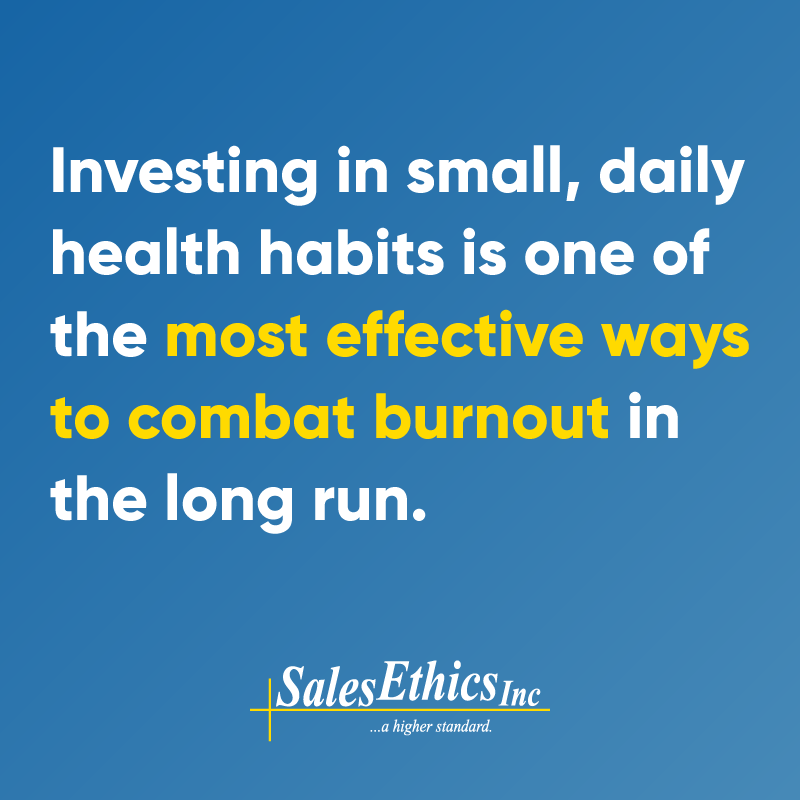
Key Takeaways
Shift your focus to small, daily wins. To counter the feeling of being overwhelmed, celebrate minor achievements like booking a single meeting or completing a follow-up, which provides a daily sense of progress.
Create and fiercely protect boundaries. You cannot recover if you are always "on." Designate specific hours when you are unavailable for work calls or emails, and treat that time as essential for recharging.
Streamline your workflow and lean on your network. Focus on working smarter by automating repetitive tasks. Don't isolate yourself; connect with mentors or peers to share strategies and lighten the mental load.
Who this article is for
This article is for sales professionals who are experiencing burnout and exhaustion but are in a position where they cannot afford to quit or take an extended leave of absence.
Sales is one of the most demanding professions out there. The pressure to meet quotas, the constant prospecting, and the emotional rollercoaster of client negotiations can lead to burnout faster than you might think. But what happens when you can’t afford to take a break? When your sales role is your sole financial lifeline, stepping away from work isn’t always an option. So how do you recover while still performing?
Here’s a realistic guide to managing burnout without pressing pause on your career.
1. Shift Your Mindset: Focus on Small Wins
Burnout often comes from feeling overwhelmed by the big picture—constant pressure to hit larger targets, secure bigger deals, and push for long-term success. To counteract this, start celebrating smaller wins.
Did you book one solid meeting today? That’s a win.
Did you follow up with a potential client? Win.
By focusing on these smaller achievements, you shift your attention away from the larger pressures, giving yourself permission to feel good about daily progress.
2. Set Clear Boundaries
In sales, it's tempting to always be "on," but that’s a fast track to burnout.
Even if stepping away completely isn’t possible, you can still set clear boundaries with your time. Designate specific hours when you’re not available for work calls or emails. Protect that time fiercely.
It might be a few hours in the evening or a full day over the weekend—whatever you can manage.
You’ll be surprised how much a mental recharge during off-hours can impact your energy and focus when you're on the clock.
3. Streamline Your Workflow
When you’re feeling burnt out, productivity can take a hit.
Instead of trying to work harder, focus on working smarter. Automate repetitive tasks like email follow-ups or calendar scheduling. Take advantage of sales tools that simplify lead tracking and communication.
By making your workflow more efficient, you reduce unnecessary stress and free up more mental energy to tackle the more important parts of your job.

4. Find a Support Network
Sales can feel isolating, especially when you’re struggling. But you don’t have to go it alone. Whether it’s your team, a mentor, or even a network of fellow sales professionals outside of your company, talking through challenges can lighten the mental load.
Venting, sharing strategies, and receiving encouragement from others who’ve been through the same thing can be a powerful motivator and stress reliever so you can keep chugging along.
5. Prioritize Physical and Mental Health
You don’t need to quit your job to take care of your health—but you do need to make it a priority.
This could be as simple as adding a 15-minute walk into your day, laying off the junk foods (that practically call out to us when we’re tired and low on energy), and making sure you’re getting the full 8 hours of sleep when possible.
When you’re physically and mentally drained, it’s harder to stay sharp, and your outlook on life and work feel darker.
Investing in small, daily health habits is one of the most effective ways to combat burnout in the long run.
6. Set Realistic Expectations
Finally, give yourself permission to be human. Sales types like us are often wired to be high-achievers, constantly pushing for the next win.
But sometimes, the best thing you can do is adjust your expectations. There will be slower seasons, and that’s okay.
By setting more realistic goals for yourself during periods of burnout, you reduce the pressure to constantly perform at your peak. Remember, your success in sales is a marathon, not a sprint.
Final Thoughts
Burnout is real, and in a sales role, it can feel like an insurmountable obstacle when stepping away from work isn’t a luxury you can afford.
But by focusing on small changes, like setting boundaries, streamlining your workflow, and leaning on your network, you can find a way to recover without sacrificing your income.
Your energy and mental well-being are vital to your long-term success—and taking small steps now will help you stay sharp and engaged in the job you love.
You're not alone. Get help from a personalized sales mentor that can help you recharge, refocus, and improve your sales career.
Sign Up for Mentorship



